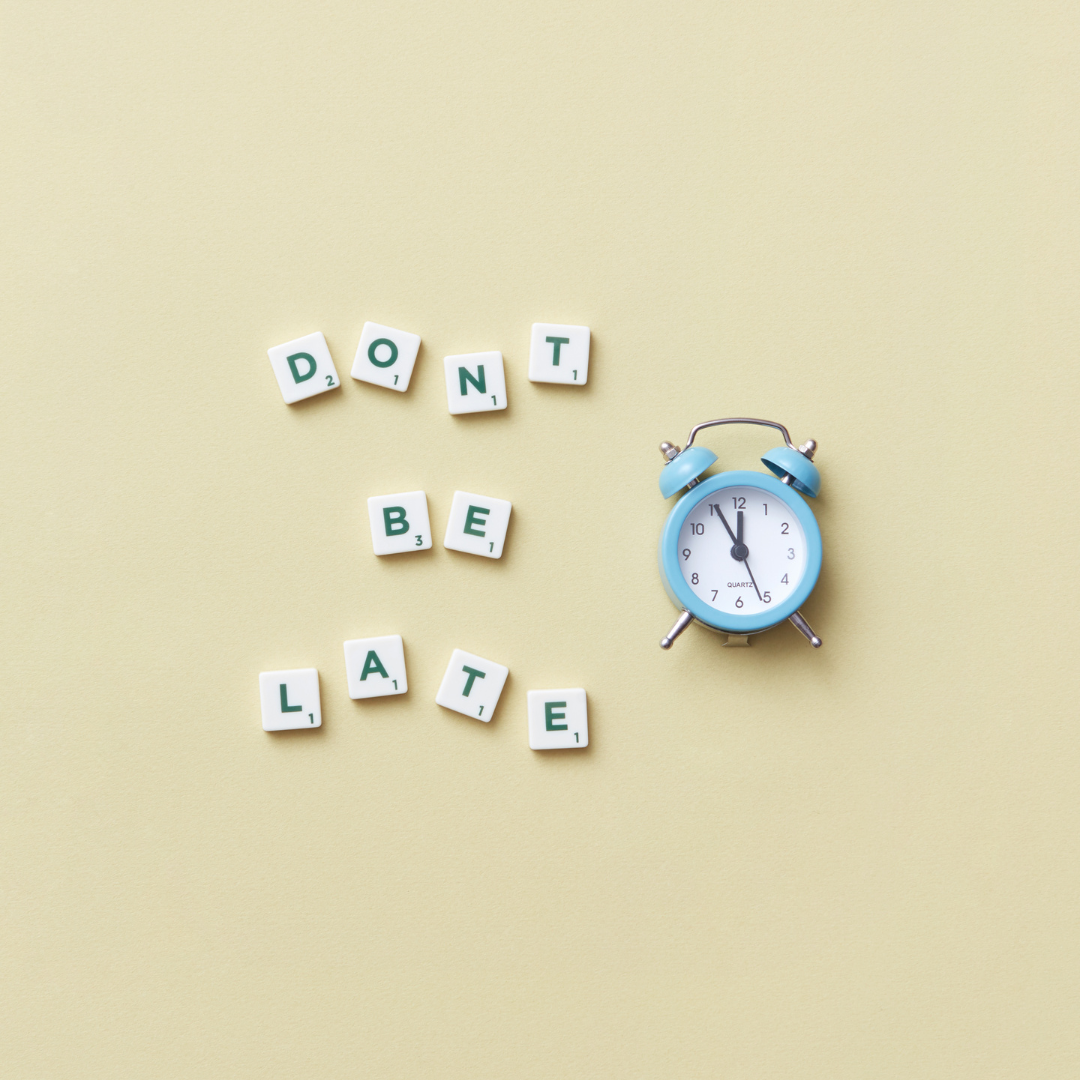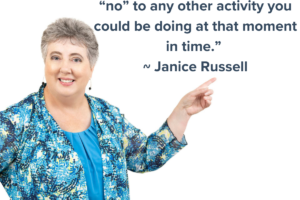
How to Solve Always Being Late
I always chuckle this time of year because for many years, basketball tournaments scheduled games back-to-back like this: Game 1 at 1:00 p.m. and Game 2 at 3 p.m.
“What’s the problem?” you ask.
A basketball game generally lasts two hours. When there are multiple games, it is traditional to have 20-30 minutes between games. So if the first game starts at 1:00 p.m. and lasts until 3 p.m. and then there is a 20-30 minute break, it is impossible for the second game to start at 3 p.m.
“And why should I care?” you may ask. Because many people aren’t much better in estimating time!
If I ask you how long it takes to get to your favorite coffee spot, you’ll give me a definite answer, like 15 minutes. And I will say, “Wrong!” While 15 minutes may be the door-to-door time, you have to get from wherever you are in your home or office into your car. Once you get to the shop, you have to park and walk in. This will probably take an additional 10 minutes. Thus, the total time until you can order your beverage of choice is really 25 minutes.
Now unless you are meeting someone for coffee, the difference in time may not matter. However, what if you are going to a business meeting or a show or a presentation at your child’s school? Being late usually has consequences. You arrive late and disrupt a meeting. You arrive late and disturb other people as you take your seat. You arrive late and someone gets angry with you.
Over the years, many of my clients have had light-bulb moments when they discovered that they hadn’t accounted for the “total time” when going from one location to another. Just this one shift in perspective and then resulting action was a huge positive benefit in their lives.
WHAT CAN YOU DO?
Idea One. Basic Addition. Whether it’s a route you take frequently, or relying on your GPS, add in time to get to and from your vehicle on both ends. This is what I did in the previous example. If you take public transportation, calculate the time needed to get to and from the station. If walking is part of the equation, there are apps for that!😊
Idea Two. Pad Time. If estimating time isn’t a strength, take the route information, then plan for time-and-a-half. So if the trip takes 30 minutes, you plan for 45 minutes. Now I know some of you are concerned with “wasted” time if the trip really only does take 30 minutes.
My strategy is to keep a magazine in my purse. So I always have something to read if I arrive early or if some other circumstance creates a pocket of time in my day. My preference is Readers Digest or Guideposts because they are small and I enjoy their stories. You might choose to spend extra time on a digital device. I read a physical magazine because it’s a change of pace and gives my brain a break.
Another benefit to arriving early, or on time, is that you will be more mentally prepared for the task. It gives you a moment to take a deep breath, review materials (if applicable), and take care of personal needs. It’s definitely better than driving like a maniac, screeching into the parking lot, and racing into a meeting! Or alternatively, arriving late to a doctor’s office, only to find out you need to fill in forms, all of which results in having sky-high blood pressure.
You may be thinking, “But adding or padding my time is like setting my clock early; since I know I do it, I can deliberately change my departure time back to my original plan.”
True! But at what cost? Getting a speeding ticket? Frustrating the person you’re meeting? Being flustered? Not being prepared?
Don’t want to think of it as “adding or padding your time”? Here are some alternatives:
-
allowing adequate time between appointments
-
taking a few minutes for yourself
-
transition time
It really doesn’t matter what you call it. What matters is getting to places in a timely manner!
At the top of this post, I said that “for many years” basketball tournaments scheduled games back-to-back without allowing for time in-between. A few years ago, tournament organizers realized the inherent timing problems in their schedules, so they added in 30 minutes between games. This definitely makes the timeline more realistic, yet it doesn’t allow for if a game goes into overtime.
Then again, it’s impossible to factor in all possibilities! You just have to try your best.
If you are a “timely” person, what strategies do you use to get to places on time? If you are an “often late” person, what gets in the way of you getting places on time? Please leave me a comment!
By the way, now that we’ve entered the world of back-to-back virtual meetings, getting to virtual gatherings on time is a challenge! I’ll address strategies about that for another post.



